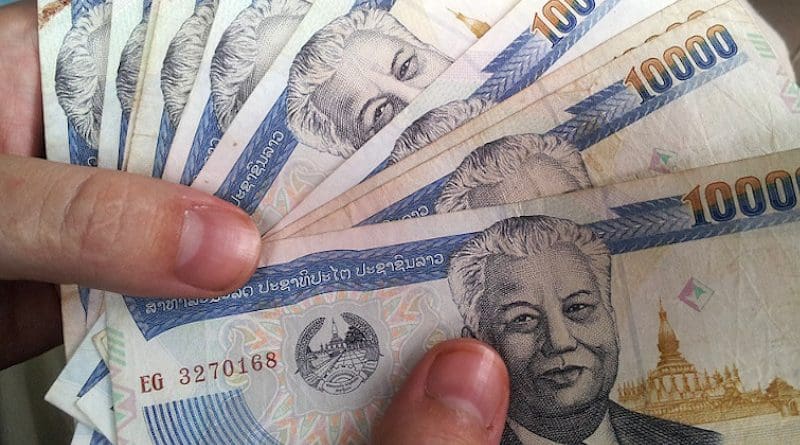Thai Baht Remains Resilient Notwithstanding Twin Crises – Analysis
It might sound strange for an emerging market currency, but the Thai Baht, the currency of Thailand, has been one of the best performing currencies of the past decade.
Even at the peak of the Covid-19 crisis, when many emerging market currencies tumbled, and some states, such as Argentina, started negotiations with their creditors to restructure their debt, the Thai Baht has held relatively well.
The table below shows the performance of the Thai Baht against the U.S. dollar during the past five years.
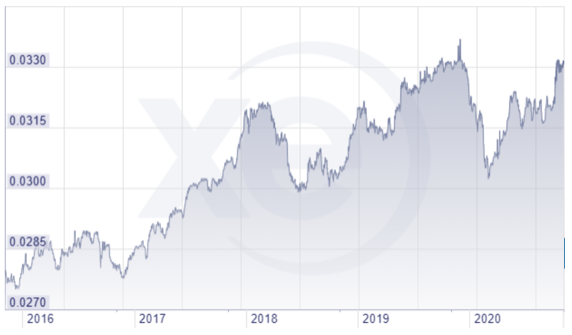
After reaching the peak at the end of 2019, the Thai currency has lost some of its value in 2020. Yet even after the recent slump, the Baht continues to be much pricier than it has been for much of last decade.
This resiliency becomes even more staggering if we consider that Thailand is facing not one, but two crises at the same time.
In the first six months of 2020, Thailand has lost 10% of its gross domestic product. Considering some recovery in the final quarters, the loss could ease to 8%. Still a significant setback.
The second crisis is political. The country has been plagued from a long-dated fight between pro-democracy supporters and conservatives loyal to the royals.
A coup in 2014 brought to power a conservative military junta, which is still ruling the country after more than six years in power. When Thailand’s former revered king Bhumibol Adulyadej died in 2016, the conservative party lost an important asset.
Tired of years of military power, lavish spending by the current king, and months of economic hardship as Thailand shut off its borders to foreign tourists to limit the spread of the virus, the people of Bangkok have come to the streets asking for political reforms.
Notwithstanding all these problems, how come the Thai Baht continues to be resilient?
Strong Currency Control by The Central Bank
The first reason lies in the policies carried out by the country’s central bank. Thailand was one of the victims of the Asian financial crisis in 1998-1999, experiencing massive capital outflows, a double-digit economic contraction, and a wave of bankruptcies, especially in the real estate sector.
The Baht collapsed, reaching its lowest level ever against the US dollar.
After that dismal period, the Bank of Thailand has continuously strived to keep the currency under control at any cost: by keeping rates stable, implementing capital controls, accepting economic recessions (there have been twice before this one in the last decade).
The result has been a period of low inflation (shown in the graph below), especially low for an emerging market economy.
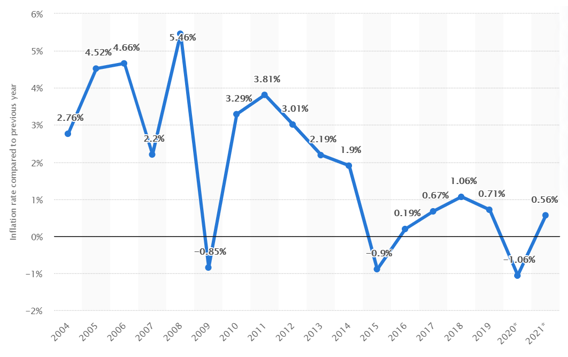
Massive Influx of Foreign Capital Through Tourism
The second reason is due to the country’s best performing sector: tourism. During the past five years, just before Covid-19 struck, Thailand has experienced a massive surge in the number of tourists. Its exotic islands and Bangkok’s bustling nightlife have never been more popular among tourists from the USA, Australia, Northern Europe, but also Japan and South Korea.
More recently, Thailand has become the destination of choice for Chinese people, whose rising incomes have made them an attractive target for the Thai hospitality sector. Consequently, arrivals grew almost 50% just from 2015.
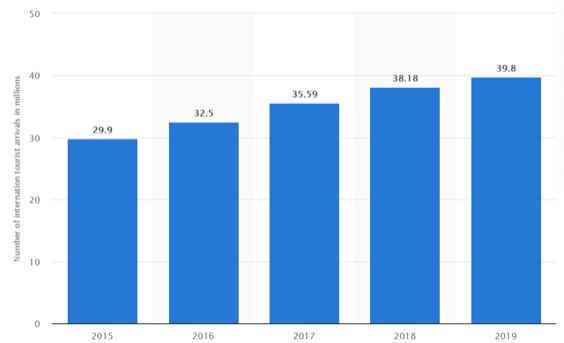
This huge horde of people translated into a massive inflow of foreign currency to Thailand, which pushed the exchange rate upwards. Essentially, the strong Thai tourism industry has the same effect on the economy than a competitive export-oriented manufacturing sector.
Large Foreign Currency Reserves Keep the Thai Baht Afloat
Through the combination of conservative monetary policy and massive influx of foreign money, Thailand has amassed a huge amount of foreign currency.
The graph below shows Thailand’s foreign currency reserves in millions of United States dollars.
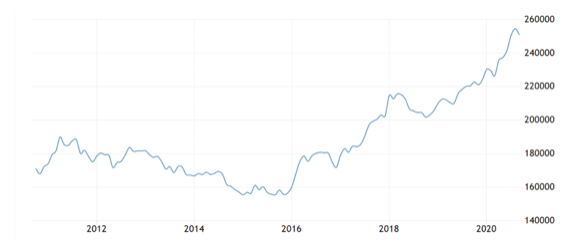
While reserves shrank in September and October this year, they have kept growing for almost all of 2020.
This is probably due to a combination of a weaker U.S. dollar and good export performance of the country’s electronics sector, whose hardware have been in great demand since everyone was forced to work from home.
Unless the political situation takes a turn for the worse, the Thai Baht should be able to withstand the current economic crisis and confirms itself as one of the best currencies in Southeast Asia along with the Singaporean dollar.
*Alessandro Lazzaro is an international trade professional and founder of an online marketplace for small businesses.

